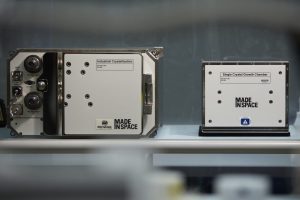It is dubbed a Pharmaceutical In-space Laboratory – Bio-crystal Optimization Xperiment (PIL-BOX). Redwire will be partnering with Eli Lilly and Company, a U.S. pharmaceutical company, to conduct testing during initial flight missions for PIL-BOX.
It is described as a “new in-space manufacturing technology to provide novel and flexible services to grow small-batch crystals of protein-based pharmaceuticals and other key pharmaceutically relevant molecules for research and production”.
The laboratory could provide commercial customers and researchers with a microgravity environment to help improve the development of pharmaceuticals and other products.
For example, Lilly’s investigations will focus on the development of treatments for diabetes and cardiovascular disease, say the companies.
“This is an exciting new capability that could unlock new drug development processes in space that could translate to improved pharmaceuticals and make a positive impact on human health,” said John Vellinger, Redwire’s Executive Vice President of In-Space Manufacturing and Operations.
“We are harnessing decades worth of in-space manufacturing expertise to develop new space technologies that can intersect with the needs of terrestrial markets, like the pharmaceutical industry, to improve products and ultimately improve life on Earth.”
 Recently, Redwire highlighted, it sold its first space-optimised product, which was a space-grown optical crystal (right). This was manufactured on the International Space Station, in Redwire’s own Industrial Crystallization Facility, which launched to the ISS in 2021.
Recently, Redwire highlighted, it sold its first space-optimised product, which was a space-grown optical crystal (right). This was manufactured on the International Space Station, in Redwire’s own Industrial Crystallization Facility, which launched to the ISS in 2021.
See also: Redwire acquisition eyes industrialisation of Low Earth Orbit

